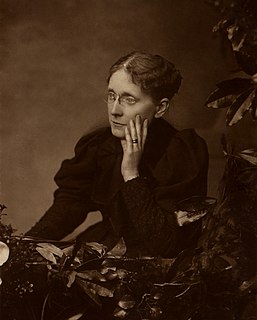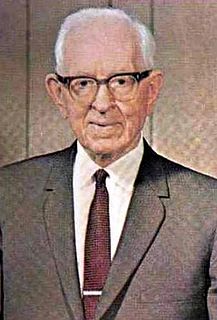A Quote by Frances E. Willard
If women can organize missionary societies, temperance societies, and every kind of charitable organization... why not permit them to be ordained to preach the Gospel and administer the sacraments of the Church?
Related Quotes
We see that there are two different kinds of...societies: (a) parasitic societies and (b) producing societies. The former are those which live from hunting, fishing, or merely gleaning. By their economic activities they do not increase, but rather decrease, the amount of wealth in the world. The second kind of societies, producing societies, live by agricultural and pastoral activities. By these activities they seek to increase the amount of wealth in the world.
What I mean by the common good is that we understand we're all part of something bigger than ourselves, that we live in societies together and must help take care of one another because you never know when you're going to need to be taken care of by others. And it's not enough to say that your family or your church is going to take care of you. Societies are collective entities, we're meant to be connected to one another; the function of government is to administer that connection.
In a cross-cultural study of 173 societies (by Herbert Barry and L. M. Paxson of the University of Pittsburgh) 76 societies typically had mother and infant sharing a bed; in 42 societies they shared a room but not a bed; and in the remaining 55 societies they shared a room with a bed unspecified. There were no societies in which infants routinely slept in a separate room.
As members of the Lord's Church, we must take missionary work more seriously. The Lord's commission to 'preach the gospel to every creature' (Mark 16:15) will never change in our dispensation. We have been greatly blessed with the material means, the technology, and an inspired message to bring the gospel to all men. More is expected of us than any previous generation. Where 'much is given much is required.' (D&C 82:3.)
Societies that exclude the exoskeleton of religion should reflect carefully to what will happen to them over several generations. We don’t really know, because the first atheistic societies have only emerged in Europe in the last few decades. They are the least efficient societies ever known at turning resources (of which they have a lot) into offspring (of which they have few).
History is driven, over the long haul, by culture - by what men and women honor, cherish, and worship; by what societies deem to be true and good, and by the expressions they give to those convictions in language, literature, and the arts; by what individuals and societies are willing to stake their lives on.





































